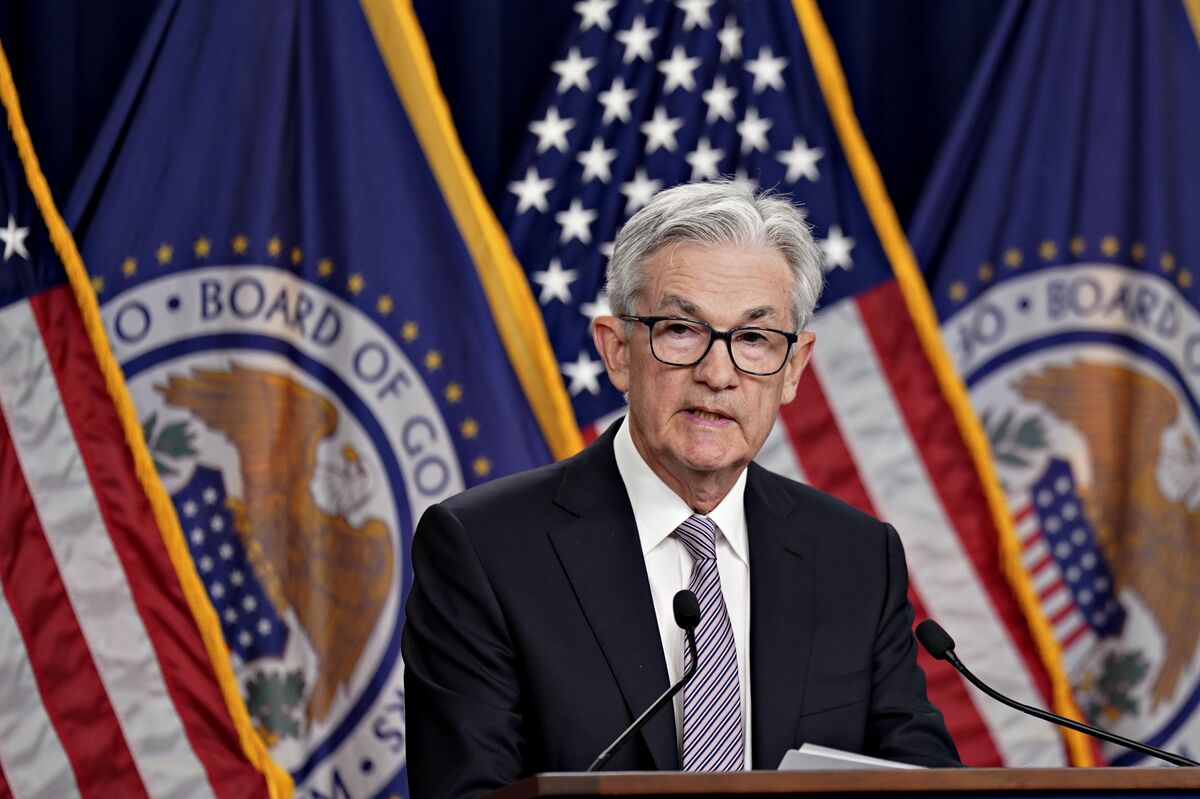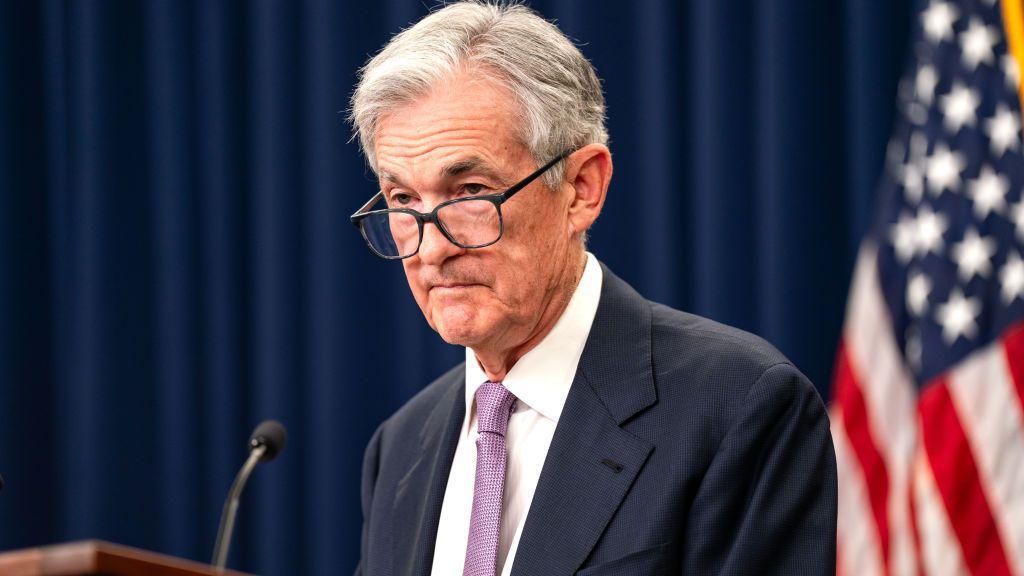Trump's Attacks on Fed Chair Powell Shake Markets, Spark 'Sell America' Trend
On Monday, Trump unleashed yet another wave of blistering critique of Federal Reserve Chair Jerome Powell via social media, demanding immediate preemptive interest rate cuts despite economic indicator

On Monday, Trump unleashed yet another wave of blistering critique of Federal Reserve Chair Jerome Powell via social media, demanding immediate preemptive interest rate cuts despite economic indicators showing low inflation and steady growth.

The post accused Powell of being Mr. Too Late, a major loser, and warned that without swift action, the U.S. economy risks stalling. In his Truth Social post, he wrote, "The Fed should have cut rates long ago. Now, with virtually No Inflation, preemptive cuts are being called for by many."
He offered no evidence of who the many calling for cuts might be, a vagueness that only fueled market unease. This echoes his past behavior: in 2019, Trump branded Powell "clueless" and even suggested he posed a greater threat to America than China.
This escalation in Trump's ongoing feud with the Fed has rattled financial markets, and the market reaction was swift and brutal.
The S&P 500 plunged 2.4%, marking a 16% drop from its February highs and edging closer to bear market territory of a 20% decline. The tech-heavy Nasdaq shed 2.6%, ending the day at 13,500, while the Dow Jones Industrial Average cratered nearly 1,000 points to 38,000. The U.S. dollar index slumped to 98.2, its lowest level since February 2022, signaling a weakening greenback.
Meanwhile, the yield on the 10-year Treasury note spiked to 4.38%, up from 4.20% the prior week, as investors dumped bonds amid rising uncertainty. Intraday lows were even more dramatic, with the S&P 500 dipping to 5,101 and the 10-year yield briefly hitting 4.42%.
Markets Reel, 'Sell America' Takes Hold
The financial fallout extends far beyond daily price swings. Trump's rhetoric has undermined confidence in U.S. financial assets, long viewed as the bedrock of global markets.
The dollar and Treasuries, traditional safe havens, are losing luster as investors grapple with heightened political risk. This shift has birthed what analysts dub the "sell America" trade—a stark departure from the "Trump trade" of yesteryear, which saw investors pile into U.S. stocks and the dollar betting on American exceptionalism.
The numbers are staggering. Foreign investors hold $19 trillion in U.S. equities, $7 trillion in Treasuries, and $5 trillion in corporate bonds, comprising 20% to 30% of these markets.
A sustained sell-off could spike borrowing costs, choke off investment, and push the U.S. toward recession. "The geopolitical power structure is being reorganized under our eyes," warned chairman of Commerzbank ag, hinting that America's "exorbitant privilege" as the world's reserve currency hub may be at risk.
Globally, the implications are equally dire. barclays strategists recently slashed their dollar forecast, citing "the live prospect of reduced Fed independence" as an unignorable threat.
With the IMF spring meetings looming, the turmoil casts a shadow over discussions among global financial leaders, who must now contend with a U.S. economy increasingly perceived as volatile. The contrast with historical norms is stark: past Fed chairs faced political pressure—think Paul Volcker under Reagan—but rarely with such public vitriol or market-moving immediacy.
Experts Defend Powell and Fed Independence
Amid the chaos, a chorus of experts has rallied behind Powell.
Chicago Fed President Austan Goolsbee issued a impassioned defense of monetary independence, warning that political meddling could shred the Fed's credibility. "There is virtual unanimity among economists that the Fed should have monetary independence," he said. "I strongly hope we do not move into an environment where that is questioned, because that would undermine everything the Fed stands for." Goolsbee's stance reflects a consensus that an autonomous Fed is vital for anchoring inflation expectations and fostering long-term stability.
GOP Senator John Kennedy offered a colorful endorsement of Powell's resolve.
"He's got tiger blood. He's going to do what he thinks is right, and he's not going to go down in history as the Federal Reserve chairman that allowed inflation to become wild as a March hare," Kennedy declared. Other voices, like Itay Goldstein of Wharton, have sounded the alarm on the broader risks, noting that diminished Fed autonomy could unleash economic instability—higher inflation, erratic growth, or both.
Powell, for his part, has stood firm. Asked recently if he'd resign under Trump's pressure, he responded with a curt "No," signaling defiance. "Generally speaking, Fed independence is very widely understood and supported in Congress, where it really matters," he added in a speech, nodding to bipartisan backing that may shield him from Trump's threats—legal experts note the president lacks clear authority to fire the Fed chair outright.
A Defining Moment
Trump's war on Powell and the Fed marks a pivotal challenge to U.S. economic orthodoxy.
The market's visceral reaction, stocks tanking, bonds selling off, the dollar weakening, underscores the fragility of investor confidence in this climate. Expert warnings amplify the stakes: politicizing the Fed risks not just short-term disruption but a lasting erosion of America's economic credibility.
The global financial community will scrutinize how this drama unfolds. The outcome could redefine the U.S.'s role in the world economy, with ripple effects for years to come. For now, the clash between Trump's populist instincts and the Fed's institutional resolve hangs like a storm cloud over markets, a reminder that even the mightiest economies rest on trust—and that trust, once broken, is hard to rebuild.
Disclaimer: The views in this article are from the original Creator and do not represent the views or position of Hawk Insight. The content of the article is for reference, communication and learning only, and does not constitute investment advice. If it involves copyright issues, please contact us for deletion.